Apps like Public and Robinhood make investing on the go easy. You can invest where you want, have access to prebuilt portfolios, and, better yet, invest commission-free. But how do you know which is better when comparing Public vs Robinhood?
I’ve outlined the differences between the two apps to help determine which is right for you. Public has a social aspect to it, whereas Robinhood caters to options investors.
Keep reading to determine which is right for you.
Public vs Robinhood: At a Glance
Commission-free trading is the theme for both Public and Robinhood, so you can’t go wrong with either platform. Of course, they have many differences too, but the lack of commissions is a strong point for either platform.
Other similarities they have include no account minimums and fractional share trading.
Public
Public is a social network for investors. It began in 2017 and is known for its ability to follow investors, mimic their investments, or get feedback. They’re also known for Public Town Halls, aka live broadcasts from professionals, giving investors more insight into the market.
Public sets itself apart from most competitors by not participating in payment order flow, a key income generator for most brokerage firms. Instead, they rely on optional tipping and make money with other miscellaneous fees.
Investors can invest in stocks, ETFs, crypto, treasuries, and alternative assets on Public and can access their account on the app or web-based application.
Public is free for most investors, but they offer a Premium option for $10 monthly. The Premium version includes the following:
- More robust research and data.
- Access to extended hours trading.
- Portfolio insights.
- Custom price alerts.
- Portfolio groups of your choosing.
Robinhood
Robinhood has been around longer than Public (2013) and was one of the first platforms to go commission-free. Robinhood offers investments in stocks, options, ETFs, and crypto, and they’re known for their low margin rates.
Robinhood is known for its passive investment strategies, but recently, they’ve rolled out new features that cater to DIY investors who take a more active approach. Robinhood also has an interest-bearing cash account where idle cash can earn money until you decide to invest it.
Like Public, Robinhood is free for most investors, but they also offer a Robinhood Gold subscription for $5 per month that includes the following:
- Morningstar research
- 4.9% interest on uninvested cash
- Level II Nasdaq market data
- Access to more affordable margin investing
Public vs Robinhood: Side-By-Side
Looking at the Public vs Robinhood side-by-side can help you compare the different features and determine which is best for you.
Trading Platforms and Apps
Public and Robinhood have desktop and mobile apps, making it easy to trade where you’re most comfortable. On Public, you trade on the internet, not on a desktop app, but Robinhood offers both.
Either way, you can access both platforms via your computer or on the go, making it easy to trade wherever you are most comfortable.
Types of Accounts
Public and Robinhood are similar in their account offerings, both of which are limited. For example, you can’t open a retirement account on either platform. You must use a different platform if you’re looking for tax-advantaged accounts.
Both Public and Robinhood only offer individual taxable accounts. Unfortunately, this means you can’t open a joint account with your spouse on either platform.
However, with Robinhood, you can pay for a Robinhood Gold subscription and have access to a margin account, which Public doesn’t offer.
Available Investments
Knowing the type of investments a platform offers plays a significant role in your decision. Both Public and Robinhood offer typical investment options, including stocks, ETFs, and cryptocurrency.
There are some differences beyond those securities, though.
On Public, you can trade alternative assets and treasuries; on Robinhood, you can trade options.
Robinhood also offers the option to trade on margin, which means borrowing to trade more. Public doesn’t offer this option, but it’s also a technique reserved for experienced investors.
Pricing and Fees
The good news is both Public and Robinhood don’t charge commissions on basic investments like stocks and ETFs. Robinhood also doesn’t charge a commission to trade options, which is a significant saving over other platforms.
Both platforms have a markup on crypto trading but aren’t transparent about it. For example, on Public, the markup is estimated at 1% to 2%, and Robinhood doesn’t disclose the fees.
Like all brokerages, Public and Robinhood have miscellaneous charges for things like wire transfers, stop payments, returned checks, and paper statements.
It’s important to note that Public charges an inactivity fee. If your account has less than $20 and you haven’t conducted any activity in the last three months, you’ll pay a $5 fee every six months this occurs.
Minimums
Required account minimums determine whether a brokerage is right for you. If you can’t meet the minimum requirements, you can’t trade!
Here’s the good news — both platforms don’t have a minimum investment required. Of course, you can’t make money if you don’t have money invested, but you don’t have to worry about meeting high minimum requirements.
However, don’t forget about the Public inactivity fee. Essentially, it’s best to keep $20 in your account and have some activity every few months if you plan to keep your account open.
Commissions
Public and Robinhood offer commission-free trades. However, there are usually other fees that apply, such as:
- Extended hours trades
- Premium subscription fees
- Regulatory fees
Fractional Shares
Fractional shares make it easy to invest in the companies you want, even if you can’t afford to purchase a full share.
Fortunately, Public and Robinhood offer access to fractional shares, which means you can invest in companies like Amazon, Nike, and Berkshire Hathaway.
Customer Service
Customer service is an area where both platforms could improve. Currently, your best bet is to email either platform for support.
However, both platforms offer a phone option. Public customer service leaves much to be desired, and you’re better off sending an email. Their customer support is available Monday through Friday, 9 AM to 5 PM.
Robinhood, on the other hand, offers 24/7 customer support. But to get to it, you must go through the app, log into your account and choose your reason for needing support.
Public vs Robinhood: Unique Features
While Public and Robinhood have many similar features, they have some unique features, too, including the following.
Public
Each investing platform is unique, as they have different attributes that make investors choose them. For example, Public is similar to Robinhood because it offers commission-free investing with taxable accounts, but they have many unique factors to consider.
DRIP
When you receive dividends from stocks, you have two options. You can cash the investment out and keep the cash or reinvest it. What if you could have the dividends automatically reinvested?
Public offers a DRIP or a Dividend Reinvestment Plan that automatically invests your dividends. This increases your portfolio and makes it much easier to compound your money faster.
Of course, you could do it yourself, but why leave it to chance when you could have it done for you?
Social Investing
Public’s social investing sets it apart from most other platforms. Instead of having access to robust features, Public provides a social aspect to your investing.
You can connect with other investors, and your trades will be public too. This allows you and other investors to learn from one another, get new ideas, and test new strategies. It’s a great way to learn hands-on about investing and try new ideas.
No Payment for Order Flow
Many brokerages use payment for order flow. This is a large source of their income and means that market makers pay them to put the orders through them. Some see this as a conflict of interest, and Public has eliminated the practice from their platform.
Instead, Public relies on optional tips that investors can leave as a way to support them in forgoing payment for order flow.
Robinhood
Robinhood is known for its commission-free investing and as a platform for trading stocks and ETFs, but other factors make it unique too.
No Commission Options Trading
Many platforms don’t offer options trading, let alone free options trading, but Robinhood does. It might not sound like significant savings, but the average broker charges $0.65 per contract each time you trade it. The cost adds up quickly, decreasing your profits, but on Robinhood, it’s free.
Cash Card
If you have a rewards credit card, you’re familiar with how cashback works, but Robinhood’s cash card doesn’t require the activation of offers. Everything is automatic. All you have to do is check the recent offers, make a purchase with your debit card, and earn cashback. You can cash it out or use the money to buy more stocks and increase your portfolio.
Earn Interest on Idle Cash
Not all brokerages pay interest on your uninvested cash, but Robinhood does. So even if you have a free Robinhood account, you can earn 1.5% interest on your cash. But if you pay for Robinhood Gold, you can earn as much as 4.15% interest.
Public Pros and Cons
Understanding Public’s pros and cons can help determine if it’s a good fit.
Pros
- Has a social feel to it, allowing you to follow investors and share strategies
- Commission-free investing
- Has prebuilt portfolios
- Great for beginners
- No payment for order flow
Cons
- Doesn’t offer a lot of research
- No option to trade on margin
- Any data or charting is simplistic
Robinhood Pros and Cons
Robinhood has pros and cons to consider, too, including the following.
Pros
- Opportunity to trade on margin
- Access to interest on your uninvested cash
- Commission-free options trading
- Premium subscription is less expensive than Public
- Great for beginners
Cons
- Uses payment for order flow
- No retirement accounts
- Limited research
Public vs Robinhood: Which Is Best For You?
Public vs Robinhood is a good debate with a clear winner, depending on your preference.
For example, if you’re an options trader, Robinhood is the clear winner. But, if you want mentors or to share investing ideas with others, Public is the best option for you.
Think about what you want out of your investing app and compare the features offered in the two apps. You can’t go wrong with either one, especially with their commission-free structure.
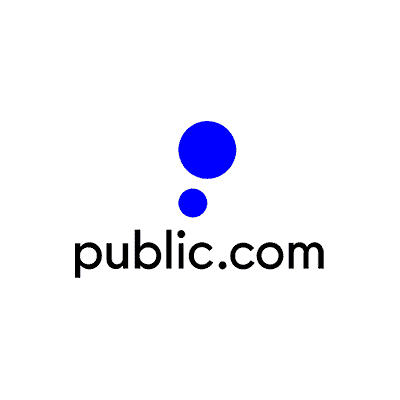
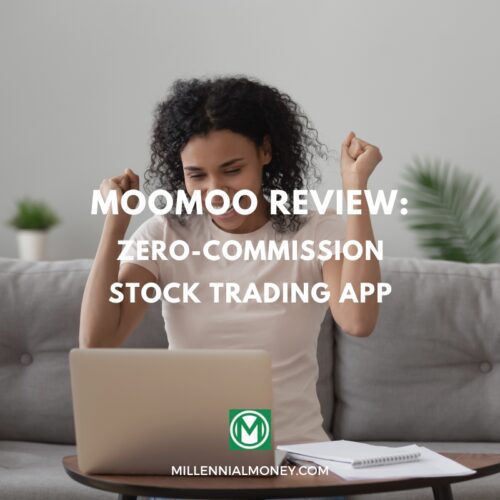
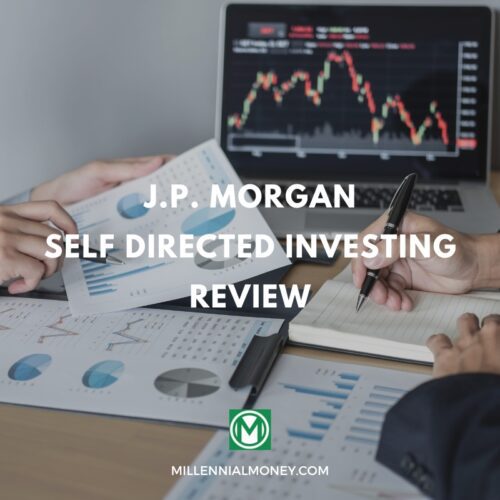

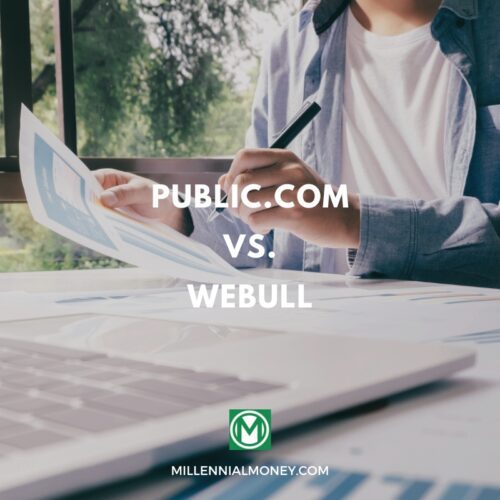
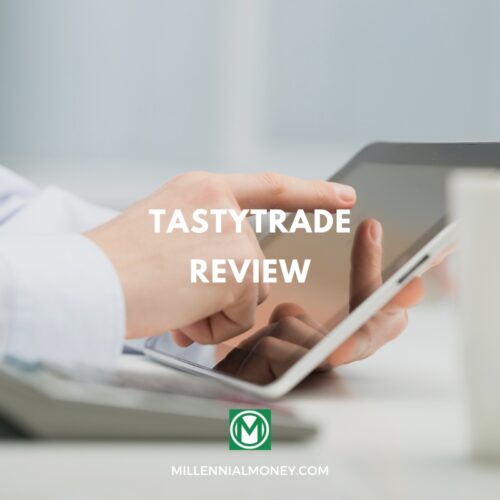
No comments yet. Add your own